Vigil of ‘guardian angels’ of sailors sadly comes to an end on Mew Island (1996)
and live on Freeview channel 276
At the start of January 1996, the Commissioners of Irish Lights were preparing to computerise the service and the last watch will leave the island this spring.
Since 1882, the keepers, the men charged with maintaining and operating the life-saving beacon, have kept 24-hour vigil as the guardian angels of sailors of the Northern Ireland coast.
Advertisement
Hide AdAdvertisement
Hide AdAfter generations of keeper had made lives on the desolate Mew Island, sharing the rock with seals and curious gulls, the station was deserted.
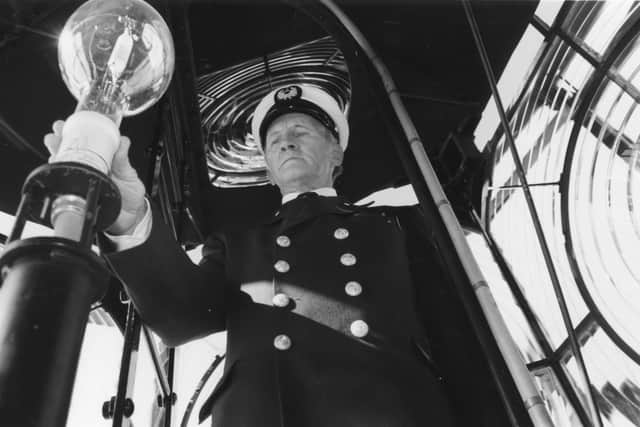

It was anticipated that once a month, an employee will travel out to the station to cast a glance over the machinery, but the days of keepers were gone.
Just 31 acres and only 32 feet tall at its highest point, Mew Island was regarded as “one of nature’s A-team of potential deathtraps”.
A sharply jagged outcrop, it silently bides its time, waiting to pierce any unsuspecting vessel’s vulnerable wooden flank with a granite dagger.
Advertisement
Hide AdAdvertisement
Hide AdMany lives and crafts had been lost to the foaming brine as the island notched up a list of hits on unwary ships passing in the night.
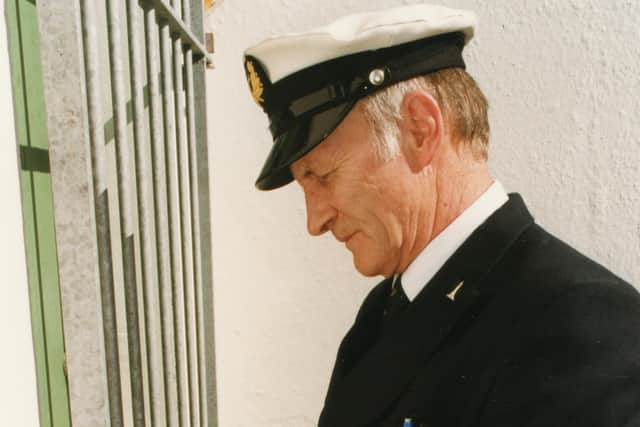

In the late nineteenth century, however, Mew’s career as every seafarer’s nightmare hit a rocky patch.
Mew Island lighthouse was lit for the first time in September 1882. Its warning beacon signalled the beginning of the end for Mew as a ship-wrecker.
Mew, which lies off the coast of Co Down and is separated from the mainland by the mile-wide Donaghadee Sound, is one of the Copeland Islands, an unassuming bunch which take its name from the Norse Kaupmennayer, meaning “merchant”.
Advertisement
Hide AdAdvertisement
Hide AdThe largest island of the group, the Great Copeland Island, had a population of almost 100 in the early nineteenth century and a school of 28 pupils.
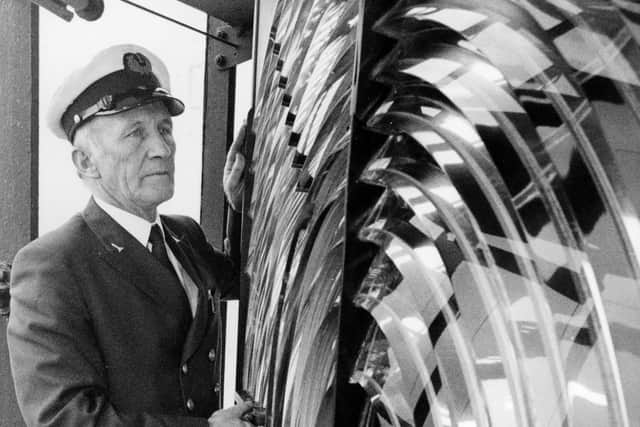

In 1946 the last two families left for the mainland leaving the bleakly beautiful island to the lighthouse keepers and their companions.
In 1711 the original lighthouse was sited on Great Copeland.
Built with stones hewn on the mainland by convicts, the Copeland Lighthouse alas had a less than glittering career.
Advertisement
Hide AdAdvertisement
Hide AdThe problem wasn’t with the light itself – initially a towering candle inferno ablaze within six-foot diameter glass panelled lanterns – but with the cursed Mew Island rocks which loomed out of nowhere.
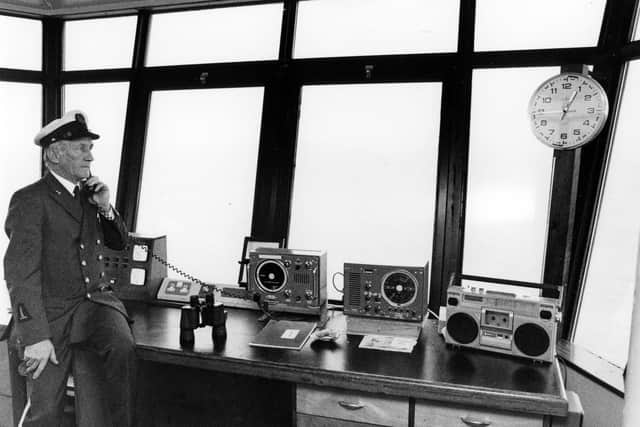

On March 25th, 1803 the sailing vessel Enterprise met its maker – courtesy of Mew.
During an easterly gale the Enterprise, a slaver returning from West Africa laden with rich cargo and silver dollars’ worth £40,000, had its hull ripped asunder by Eamharry Rock on Mew’s shore.
Something had to done.
In 1813 the building of a new lighthouse on Copeland started and a new light, equipped with 27 oil burning lamps set in silvered reflectors 131 feet above high water and visible for 16 miles, was sparked up on January 24th, 1815.
Advertisement
Hide AdAdvertisement
Hide AdThis light, powerful though it was, suffered two main drawbacks: it lacked a distinctive character – the flashing sequence unique to each lighthouse – and it failed to warn sailors of the menacing presence of Mew Island.
Incidents of ships running aground and being wrecked on Mew were many.
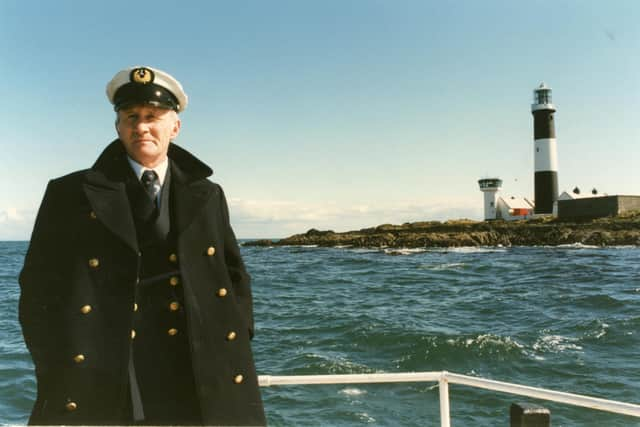

In July 1847 the Belfast to Liverpool paddle steamer Sea King ran aground in thick fog. After only two years of service she was lost, a total wreck.
Four years later in thick October fog, the Cunard paddle steamer ran aground near the wreck of the Sea King. She was refloated but many less unknown ships were less fortunate.
Advertisement
Hide AdAdvertisement
Hide AdAfter sustained pressure from shipping firms, who could cite long list of Mew casualties, the Commissioners of Irish Lights agreed to move the light from Copeland to Mew.
Work on the Mew Island station began to September 1882 and was completed the next year.
This time the builders were leaving no rock unnoticed – the tower from the base to balcony rises 98 feet. The diameter at the base is 22 feet and the walls at this point are five feet thick.
The lighthouse, topping 129 feet when the lantern and copper dome were added, was now tall enough to be seen over Great Copeland and had its own distinctive signal – a group of four flashes repeated every 30 seconds.
Advertisement
Hide AdAdvertisement
Hide AdAir pressure for the siren fog signal was provided by two compressors, each drive by an eight horsepower Crossley gas engine.
In 1928 the gas plant was discontinued, and the light changed to vapourised paraffin, the lantern was rebuilt, and a reconstructed two-tier optic, rotating in a trough of mercury was installed.
The following year the fog signal was replaced by twin diaphones and Mew now had its own unforgettable and unmistakable bark: a thundering tenor G note with a characteristic terminating grunt.
In 1948 three Ruston and Hornsby diesel engines were installed and these powered the air compressors creating the distinctive Mew warning.
Advertisement
Hide AdAdvertisement
Hide AdIn 1991 however the fog signal was silenced, replaced by a radar transponder beacon, a Racon. No more would anxious mariners rely on Mew’s melody to help find their path through tricky seas.
In 1969 the paraffin burners were replaced by 3.5kw electric lamps. In 1996, the lamp was a 1500w foot long bulb. It was still magnified by the original optic, manufactured in 1887, but the rotation was provided by an electric motor.
The News Letter noted that it was “a testimony to the dedication and expertise of the lighthouse keepers is provided by the statistic which shows that not a single life was lost to navigational error”.
The story of the end is of course in itself a sad historical tale, and one best told by the lightkeepers themselves.
Advertisement
Hide AdAdvertisement
Hide AdRobert Neal, the assistant keeper at Mew Island, knew what he would miss most when the lighthouse was automated.
“The cabbage,” he confided. “It is the most wonderfully delicious cabbage in the whole world. The vegetable garden at Mew yields produce of the most unique flavour.
“It is sea air, the sandy soil, the raw seaweed fertiliser and a little bit of Mew magic which contributes to the taste. I will miss it terribly.”
The two men in charge of Mew Island lighthouse and who would supervise its “handover” to automation were principal keeper Anthony Burke and his assistant, Robert. Their rota system schedules the men for 28 days work at a stretch, followed by 28 days liberty at their homes in Eire.
Advertisement
Hide AdAdvertisement
Hide AdBetween them, the two men had clocked up more than 60 years’ service for the Commissioners of Irish Lights, the company which owns all the lighthouses off the coasts of Northern Ireland and Eire.
Anthony Burke had, in the previous three years, overseen the automation of five lighthouses.
“It is always a very moving experience,” he said. “Lighthouses are wonderful monuments to history, each with tales and memories of their own and it is heart-breaking to think them languishing without anyone that can keep them company.
“I will be overseeing automation of the last manned lighthouses of the coast of Ireland over the next twelve months and will be retiring in March 1997.”
Advertisement
Hide AdAdvertisement
Hide AdAutomation meant the installation on the lighthouse islands of a computerised videograph which will measure distances and decide when the lighthouse fog signal should be activated.
“The machines are sophisticated, sure,” Anthony Burke added. “But you can never replace the eyes and ears of the lighthouse keeper.
“We have had such an important and varied role to play that no microchip has yet been designed to cope.
“For example, many people would telephone us just to check on the whereabouts of a craft with relatives on. We could always tell them where and when we had seen it and set their minds at rest.
Advertisement
Hide AdAdvertisement
Hide Ad“Also, the smaller pleasure boats and fishing vessels which pass by which don’t have computer or radio equipment relied on us to help them on their way. Now we won’t be here for them.”
The two men were modest about the role lighthouse keepers have played in saving lives and averting potential maritime disaster.
“Sure, it’s always nice to be able to help somebody,” said Robert.
“But in the main we never know when we have helped somebody in trouble and that's the way we always preferred it. We don’t really know which possible seafaring catastrophes we averted - probably a good thing.”
Advertisement
Hide AdAdvertisement
Hide AdBoth men said that they would miss the environment and atmosphere of the lighthouse.
“I will miss the lifestyle,” Robert said. “The service was like a family, and it is sad to see it disintegrate so quickly. People often ask if it is a lonely job, but it isn’t really. The service was like a family, and we were a close-knit group.”
Anthony looking sadly out over the island’s barren, rocky slopes, added: “I think it’s a beautiful place.”
“It’s the end of an era for Mew.” Robert surveys the vegetable patch. “I’ll miss this,” he says. “And the seafood.”
And as Anthony Burke left the island at the end of March 1992 “the honourable tradition of lighthouse-keeping” on the island of Ireland came to an end.